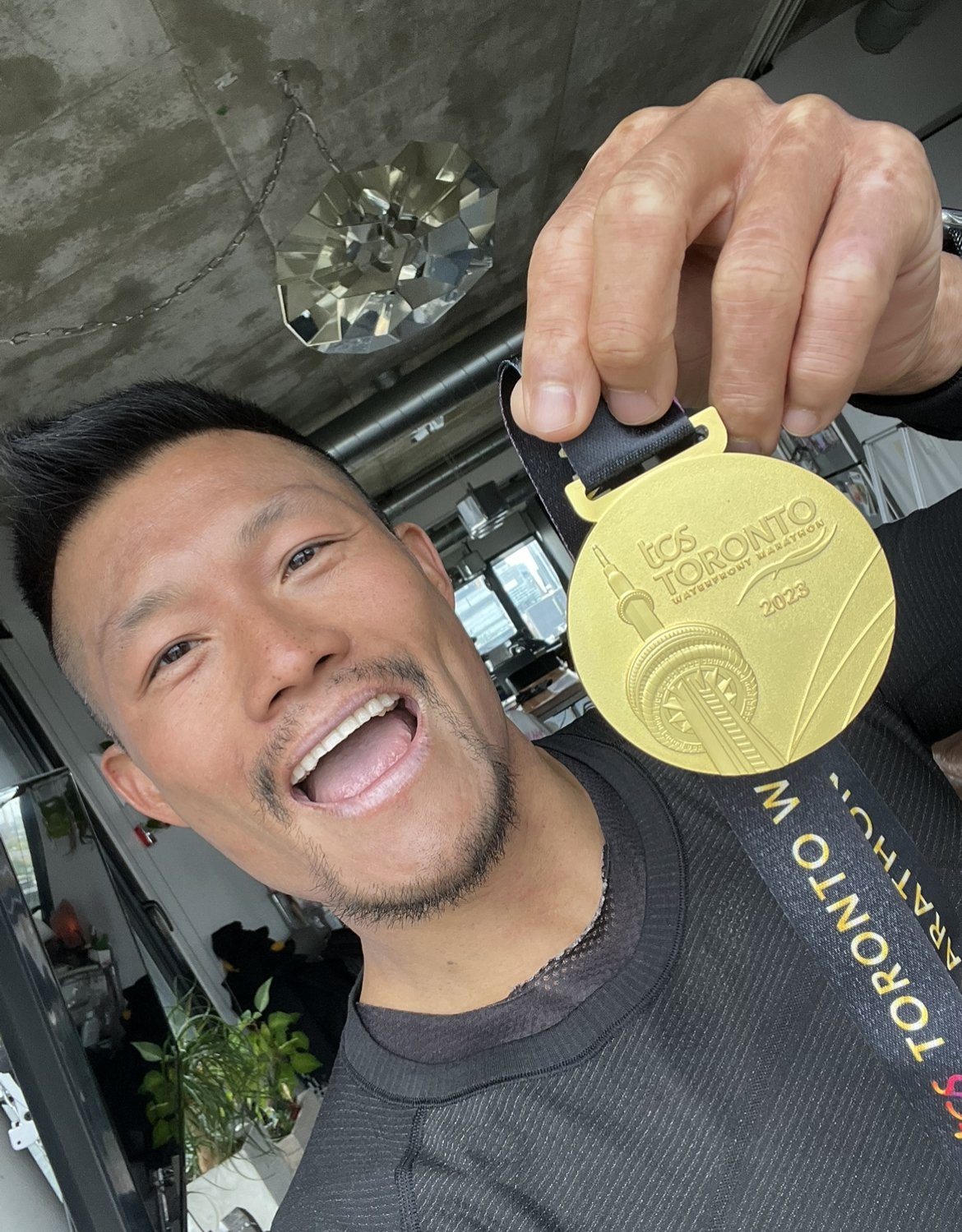I came into this fall season as a slow Ultra runner, but with a few powerful tweaks to my training, I was able to polish off the season with a Boston Qualifying time of 3:01. How’d I do it in just 6 weeks? It starts with a rule from the book Atomic Habits by James Clear.
James Clear highlights a game changing rule; the 1% rule of marginal gains to improve performance over time. This strategy is all about the accumulation of small wins as a base foundation for consistent big wins down the road. By tweaking atomic sized habits that we commonly overlook, we can use them as small win opportunities to create confidence momentum, not only in pursuits like long distance running, but in every aspect of our lives.
The rule comes from the story of the struggling 2003 British Cycling team, where a newly hired coach decided to improve every tiny thing by 1%. After 5 years of overhauling, re-learning, and repair work on the team’s systems and processes, by breaking things down to then rebuild it’s hundreds of parts by 1% improvements, this British cycling team became the winningest team in the sport’s history over a 10 year span!
I took this rule and other tips from Atomic Habits to re-craft my run training strategy. I tweaked small things, focused on improving weaknesses, and committed to a system of good habits. Here they are categorized into physical, mental, and emotional.
PHYSICAL HABITS
Active Recovery is an area of training that increases training quality better than anything else. So I put more time and energy on recovery than actual running. I realized showing up to my training fully recovered and energized empowered me to hit my numbers with ease. The following three 1% habits made me a healthier (and therefore faster) runner.
1 - I started doing 15 minutes of Run-Specific Mobility every day (1% = 14.4 minutes out of 1440 minutes in a day)
2 - I added two weekly contrast Hot-Cold Therapy with Sauna and Ice Bath sessions the day after training to help with inflammation (~1% = 2 x 60 minute sessions, 120 minutes out of 10,080 minutes in a week)
3 - I Epsom Salt bathed and Self-Massaged twice a week for muscle recovery and relaxation (~1% = 2 x 60 minute sessions, 120 minutes out of 10,080 minutes in a week)
This focus on Active Recovery is akin to sharpening the axe. It is a performance multiplier. “Give me six hours to chop down a tree and I will spend the first four sharpening the axe.” Truly a quality over quantity strategy that has stuck and poured over into other parts of my life.
MENTAL HABITS
Being organized and specific with training benchmarks elicit focus and informed action.
1 - Instead of setting weekly mileage goals on my Strava app, I set weekly duration goals at race pace 4:00–4:30 min/km during all of my runs. This helped my body quickly adapt to the specific cadence, ground impact, and heart rate required to hit a fast marathon finish.
2 - My goal setting strategy was about subdividing my goals into Goal A, B, and C to maintain a balance of rigidity and fluidity, rigid with what they were, but fluid with which one I’d use on race day: A — Sub 3:00, B — Sub 3:05 (BQ), C — No time, just run intuitively.
3 - During my (stress-inducing) ice baths, I practiced Mental Imagery simulations of the more difficult segments of the race (the beaches turnaround, the bridge climbs, and the last 2k finish). My reasoning was to mimic higher stress at these segments so that my nervous system was prepared, and my self-talk was rehearsed. (*It’s been reported that 70–90% of Olympians use Mental Imagery for performance).
EMOTIONAL HABITS
As simple as it can be, I chose three quotes to cultivate emotional momentum. I used these as my ‘North Star’; my guiding light throughout the cultivation of my ecosystem of habits.
1. “It’s not what you’re doing, it’s how much of you is doing it.”
Commitment is the name of the game. From prep, to program, to performance, no half-assing, I chose to commit full on. You get out what you put in. And I wasn’t afraid to put in everything.
2. “Have more fear of regret than failure.”
If I didn’t get the result I was hoping for, I could easily make excuses. But that attitude doesn’t suit the person I wish to become. I’m at the phase of my life where I believe that taking ownership over my actions and results leads to an honest and virtuous life. Whatever happens was meant to happen, live with it and move on.
3. “If you’re given 4 hours to chop down a tree, take the first 3 hours to sharpen the axe.”
Preparation is everything. This principle of life has served me well. By expanding preparation to more than just the physical tasks of marathon prep, my life has become so much more holistic and fulfilling.
Although my highly focused 6-week ascent in speed translated to a great result, it doesn’t always happen this way. This is not a recipe or prescription for success, it was my recipe that worked for that day. I encourage you to experiment with the rule of 1%, and create a system of habits that resonate with you and your other ongoings. Once these little tweaks align seamlessly with your lifestyle pace, you’ll be well on your way to success, all it’ll take then is probably the most essential ingredients; time and patience.
I will be taking this result as momentum for 2024. I am planning on racing UTMB qualifiers so that I can run UTMB in 2025. I hope this article has given you some insight into my process and sparked a shift in yours. Thank you for reading.
May the force be with you,
Namaste,
Julian




